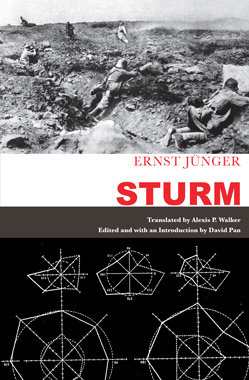Most people think that the military is all about killing other people. I, on the contrary, follow van Creveld. He states that serving in the military means more to be prepared and willing to risk one’s life then to endanger other lives. You could argue that military technology provides tools that have kinetic effects over huge distances without any risk for one’s personnel. Drones, for example, are such weapons. However, can you win a war with only drones? We have relearned the lesson that it takes “boots on the ground” to win “the better peace,” as Clausewitz carefully worded it. It takes soldiers on the ground to control an area, to protect the population, to de-escalate a situation, and to win hearts and minds.
|
Sacrifice, or at least the discourse of sacrifice, is a recognizable aspect of popular management discourse and management scholarship of the “post-bureaucratic” variety, especially popular in America from the 1980s to the 2000s. The absence of bureaucratic structures of command necessitates other forms of authority, and notions of sacrifice form part of the symbolic armory of the post-bureaucratic chief executive—though, of course, post-bureaucracy is itself a symbolic myth more than a practical solution. In this talk I will set out some aspects and suggest, playfully, that there are crypto-theologies at work in management discourse and scholarship; I will finish by connecting these to the sacrifice and excess inherent in neoliberal forms of organization. When Carl Schmitt declared in Politische Theologie (1922) that “All significant concepts of the modern theory of the state are secularized theological concepts,” one could be forgiven for thinking he was directly invoking Max Stirner, who, in Der Einzige und sein Eigenthum (1845), launched a devastating assault on the religious categories that haunted modern thought and politics. While Schmitt and Stirner are approaching the question from opposed perspectives, they are nevertheless engaged in an investigation of the relationship between theology and politics. This article shows how Stirner’s unmasking of the Christianizing impulse behind modern secular humanism—particularly that of Ludwig Feuerbach—and his critique of liberalism, leads us to a radically atheistic politics in which the sovereignty of the state and its accompanying figure of the liberal individual, are deconstructed. Central here is the notion of the insurrection as a revolt against “fixed ideas” and their hold over us. Through his figures of the unique one, ownness, and insurrection, Stirner provides us with an alternative, non-theological language for subjectivity and politics that avoids the chain of substitutions underpinning the theological drive of modern secularism. A recent piece in the Atlantic by Jonathan Merritt declares the “death of moral relativism.” It echoes observations made by other pundits that there seems to have been a shift in cultural attitudes concerning morality. In the United States, subjectivist, relativist, and “postmodernist” stances are said to have been replaced by robust commitments to social justice, tolerance, and inclusion. David Brooks also, for example, discusses the rise of a veritable “shame culture,” particularly evident on American college campuses and social media, ready to condemn and ostracize those who fail to acknowledge the importance of upholding these new, powerful norms of respect and recognition for the marginalized and oppressed. Indeed, the trend is so omnipresent that there has been significant backlash—critics decry the policing efforts of “social justice warriors” and the scourge of “political correctness.”
Those who read Hamlet or Hecuba from the specialist’s standpoint have often found it naïve, and maybe with good reason. Yet I do not want to linger on its worth or faults as a critical essay; I would rather try to read Schmitt’s book in the same way that he read Hamlet, as an eccentric writing, not completely closed, that deals with a subject matter but revolves around another one: Hamlet or Hecuba is something more than a piece of literary criticism. |
||||
|
Telos Press Publishing · PO Box 811 · Candor, NY 13743 · Phone: 212-228-6479 Privacy Policy · Data Protection Copyright © 2024 Telos Press Publishing · All Rights Reserved |
||||



